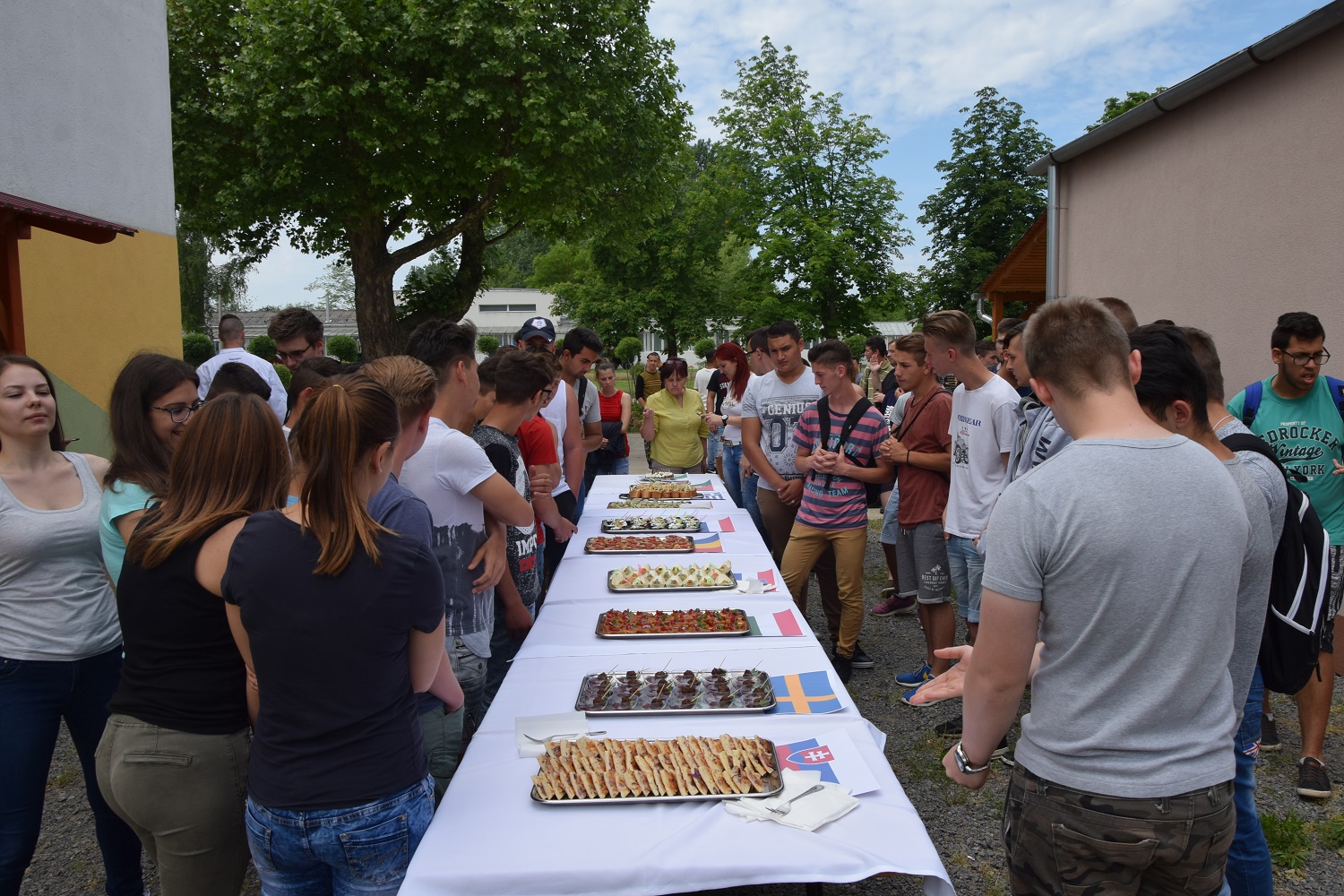Dance for tolerance: Flash mob in the European Week
In the European week Kerpen pupils sent a special signal for acceptance and tolerance during break in front of the main entrance to the Gymnasium together with 100 pupils of the Ulrich School and the Adolph-Kolping School.
The three schools danced together to the song “Tu enemigo” (Your enemy) by Juanes and Pablo López with their own choreography in a flash mob, aiming to promote more understanding for refugees who had to leave their countries and have now found protection in Europe.
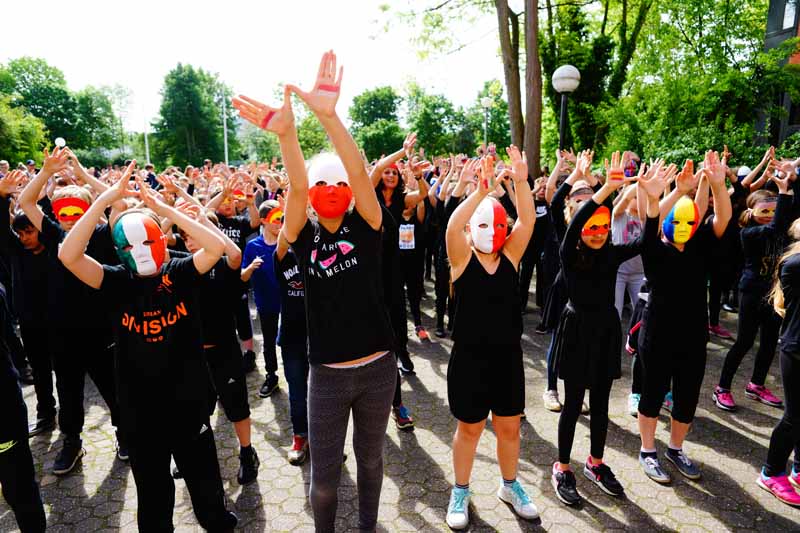
Pupils wore masks with the colours of European flags. This is a strong and moving signal at the time of Brexit and xenophobia. The choreography moved hearts and the dance gave an enormous feeling of togetherness.
Diversity in a different way: Exhibition in the European Week
“Every mask, no matter what characteristics it shows, announces its non-identification with the everyday world.” (Mircea Eliade)
Who wouldn’t like to step out of everyday life? Try out a new role, show oneself without being immediately recognised? The pupils of the Adolph-Kolping School and the Gymnasium Kerpen found the idea of creating masks in the framework of the Erasmus+ Project “We in Europe – shaping the future” immediately exciting. They had fun and created their own very personal masks.
The country of origin was often a topic in their designs and that led to fantastic colours and diversity. The photos give an impression of the mood in the workshop: there were lots of laughs and a lot of courage, even among the youngest, when painting the masks and posing for the camera.
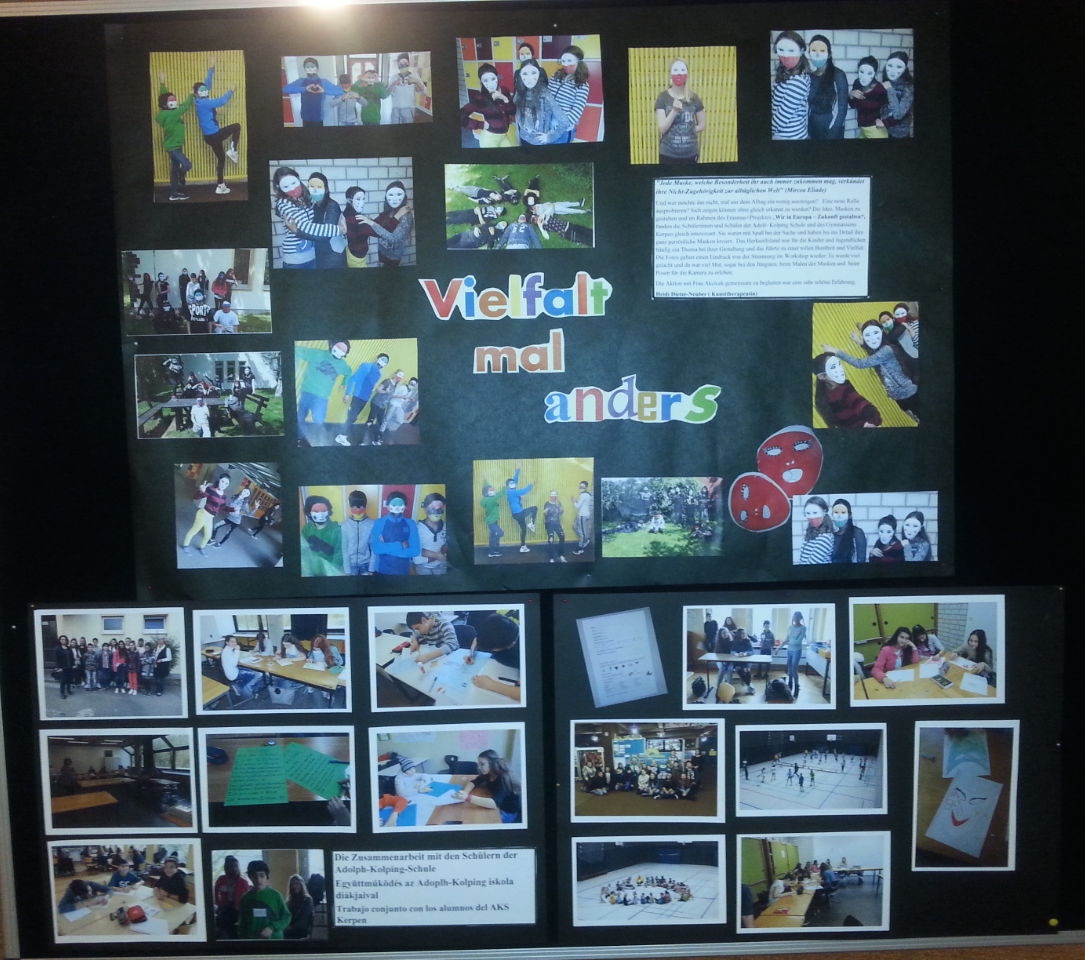
The action was carried out by Ms Akcicek, the teacher in the integration class of the Hauptschule together with Ms Dietze-Neuber, an art therapist.
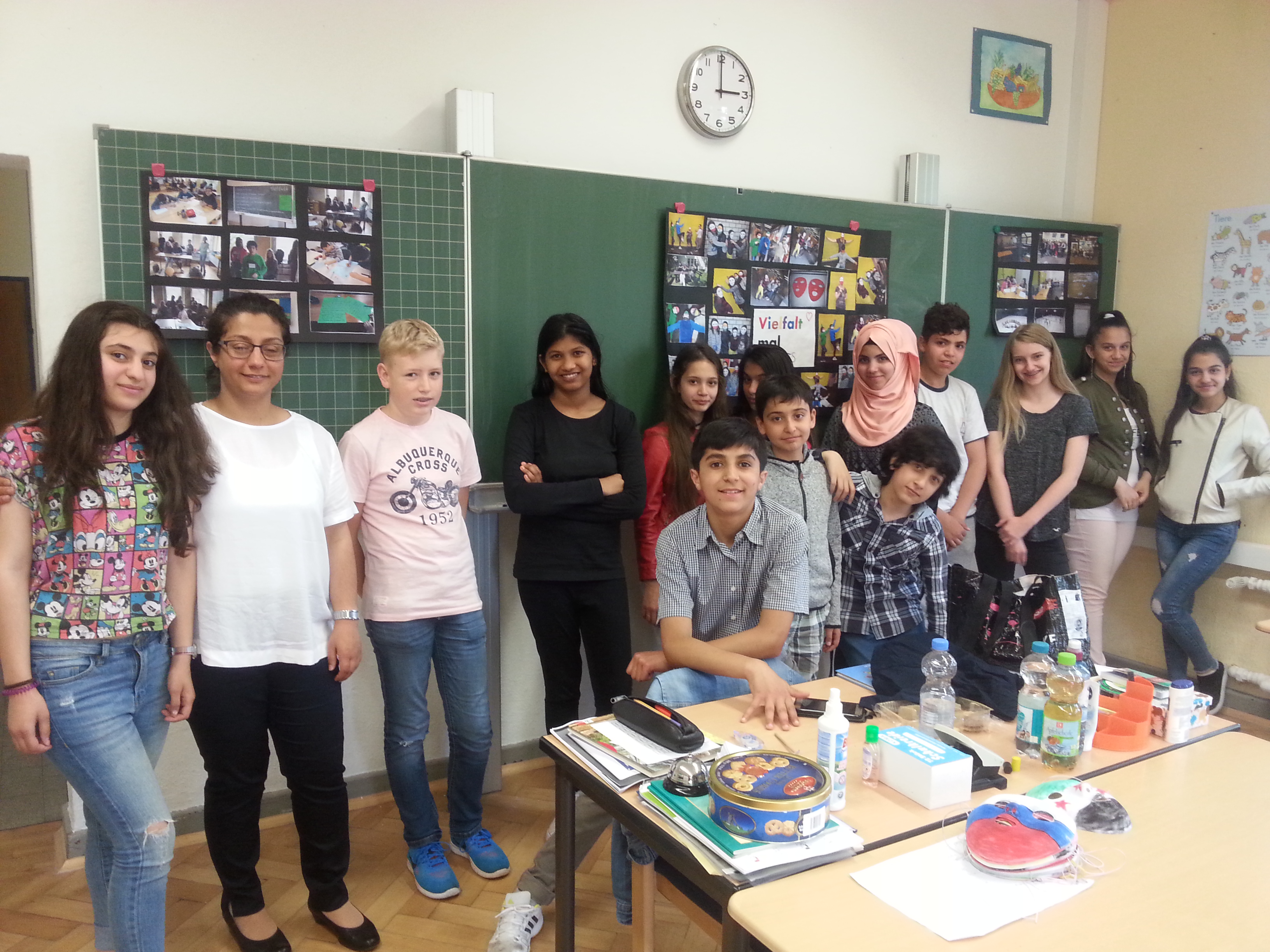
The exhibition was shown and our project presented in the Hauptschule as well.
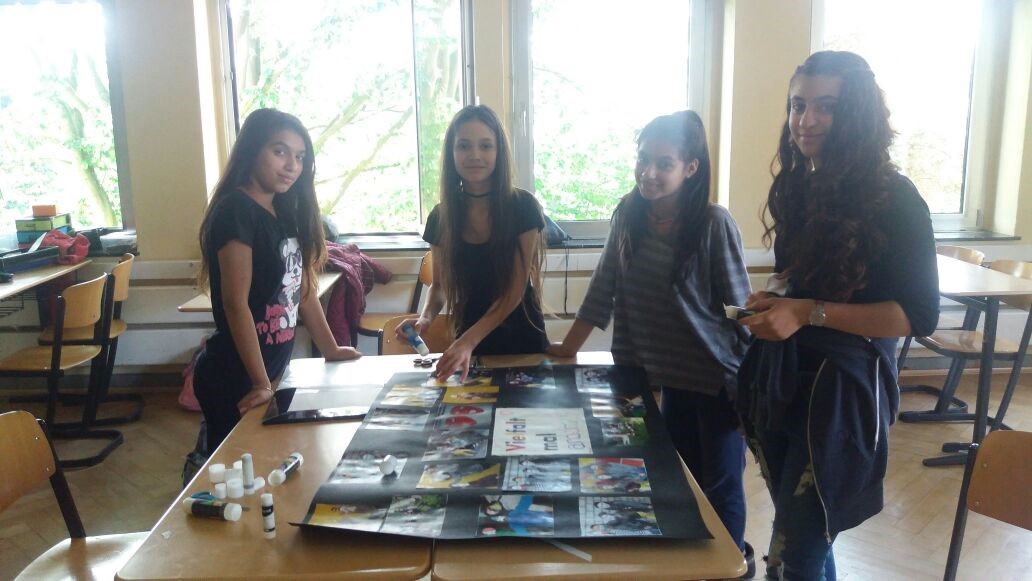
The topic of integration and what prevents it
How can integration succeed?” Not abstractly and theoretically, but concretely in one’s one class? That was the topic of the “Future workshop”.
Under the leadership of the integration coordinator of the city of Kerpen, Ms Seiche, and moderated by a journalist from WDR, Frau Münch, pupils from year 9 analysed this important and exciting topic.
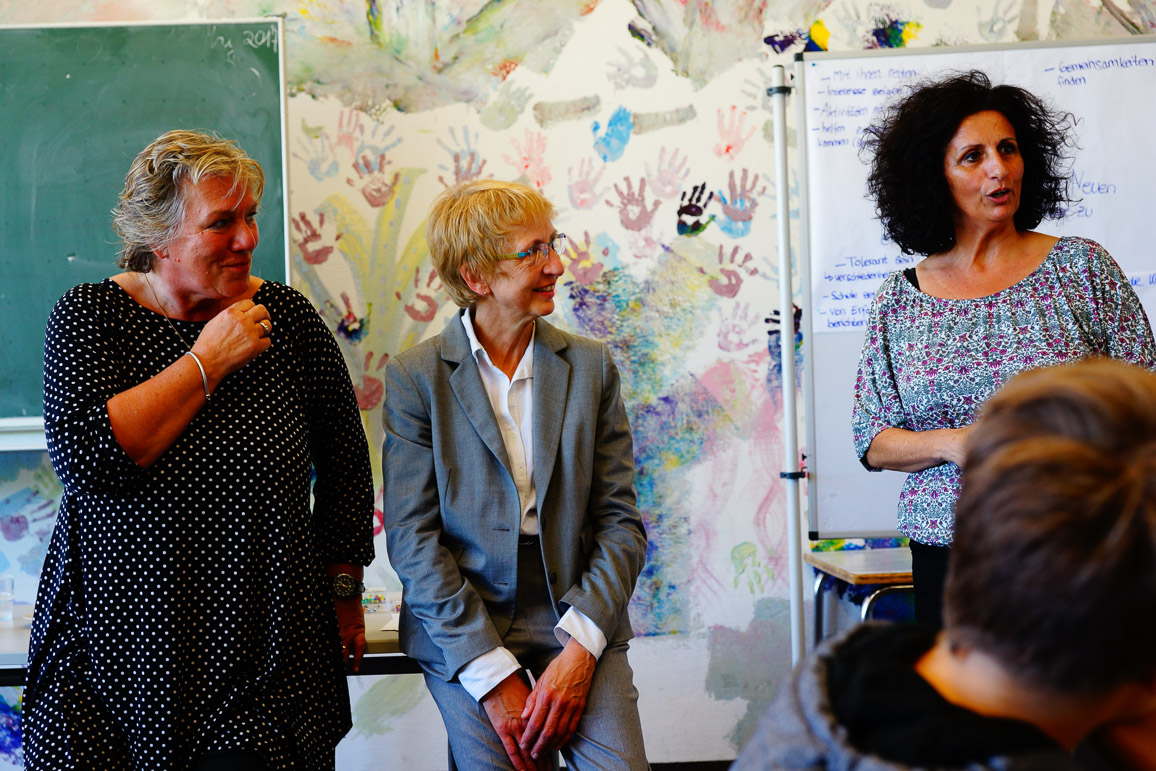
After a short introduction by Ms Seiche, which emphasised cultural as well as economic aspects, the pupils began their practical work. Equipped with the key questions “What is helpful to make the integration of new pupils into a class/group easier?” and “What do I do immediately?”, the groups discussed, argued and collected ideas.
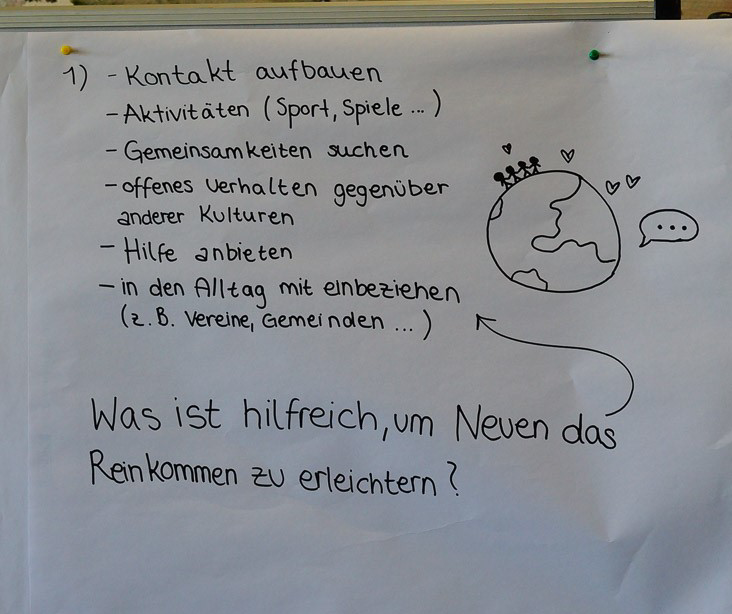
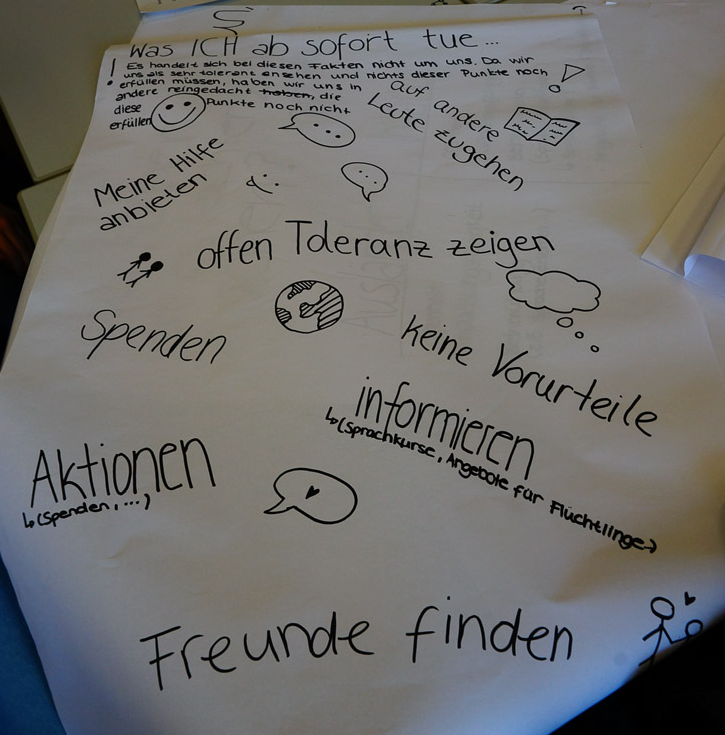
At the presentation of the results under the moderation of Ms Münch, the pupils discovered further difficult questions and exciting discussion topics, for example, what tolerance and respect actually mean, what one can do when apparently the differences, not the similarities, predominate and none of the partners want to change. Practical Ideas and tips for possible support were collected, for example, giving the new pupil a guide to the building or taking the first step towards him/her and taking an interest in him/her. Time did not allow for the discussion of all the ideas, but was enough to create food for thought and ask oneself what every individual can do.
“The is the way to master integration!”: Reports from refugees.
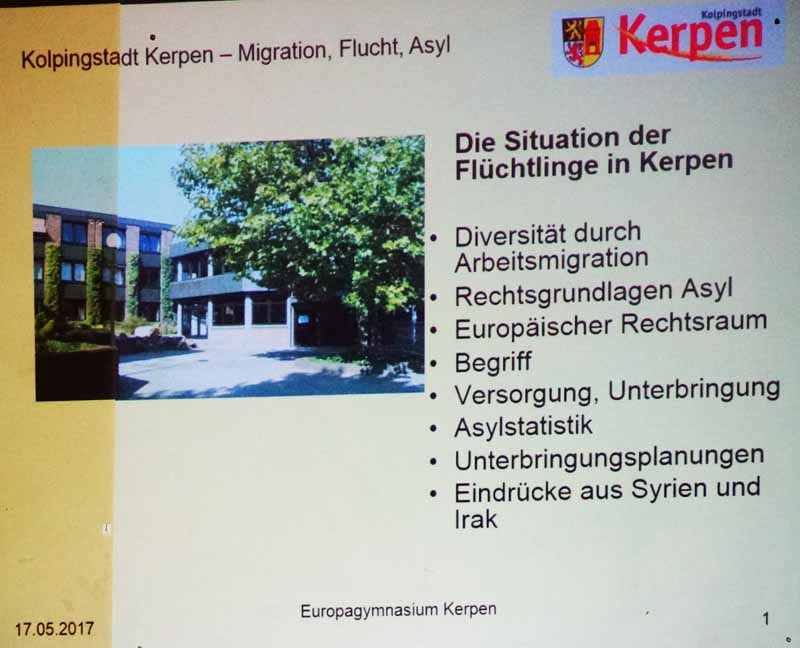
Ms Annete Seiche, who organises the housing of refugees came to the European Week with two refugees, Mohammad Ghareeb from Latakia in Syria and Hussein Alamod from Bagdad, the capital of Iraq. Hussein Alamod travelled for 18 days by bus, plane, taxi, and train and finally landed in Munich and then at the final station in Kerpen. He goes to school here and speaks excellent German, although he has only been here for a year and a half. He is well-integrated, does sports in his free time, meets friends. He communicates with the family in Iraq over Skype, Facebook and other media. He has decided to stay here in the meantime.
According to Ms Seiche there are many prejudices about refugees and their situation in Germany. The country equips them better than jobless Germans is one. Nonsense, says Ms Seiche. Look at these photos of Kerpen’s refugee housing: tiny rooms, bunk beds, several people sharing a kitchen and bath. Everything is clean, but very crowded. People do not leave their home countries for the fun of it, but when they do not have any basis for existence, when they want to escape war and suppression.
Mr Seiche invited the pupils to imagine they had fled to Japan for political reasons, because there was a dictatorship in Germany. A country whose language you do not understand, whose writing you cannot read, whose money you do not own. What do you do? How do you make yourself understood? How do you get food? Who do you talk to in order to get asylum? This is a depressing thought.
We went home with the feeling that we have a good life in Germany. The motivation to help refugees was clearly intensified.
Prejudices throughout history
How do prejudices arise? What effect do they have on people? A Religion class in year 8 was concerned with these questions.
Prejudices arise when basic and human rights are violated. This can concern single people, groups of people but also peoples. This violation has always taken place since the beginning of history. The Religion groups determined that these basic rights are based in principle on the 10 Commandments.
This journey through the history of prejudices was a reflection on what keeps us from treating others with the necessary respect.
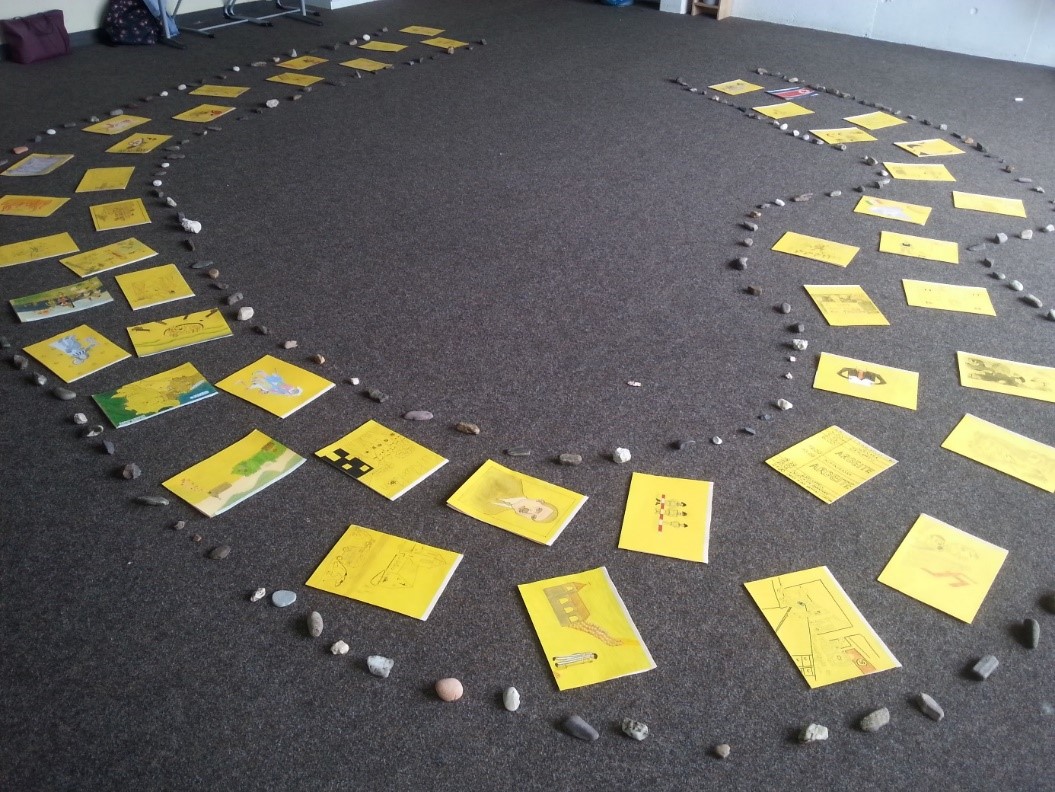
The exhibition: “Tolerance-Respect-Solving Conflicts”
The exhibition “Tolerance-Respect-Solving conflicts” was created by the PPL course in year 7. The pupils began by talking about “tolerance” and “respect” and defining these concepts.
They also found the many-sidedness of the topic of conflict, which extended across subtopics like “bullying” and a poll of the student body which showed that pupils considered themselves much more tolerant than the questionnaire showed them to be.
European Day
Unsere Partnerschule in Ungarn bearbeitete die ersten Inhalte für unsere Fotoausstellung „Auch wir sind Europa“, ein wesentlicher Baustein unseres Projektes. Es geht hierbei um die Hervorhebung der Vielfältigkeit der Roma-Kultur als zugehörender Teil Europas sowie um die Aufklärung über ihre Lebensbedingungen. Diese Ausstellung wird jeweils bei den nächsten 3 Erasmus+ Mobilitäten (Oktober, Deutschland, Januar 2018 auf Gran Canaria, Mai 2018 in Ungarn) ergänzt.
.jpg)
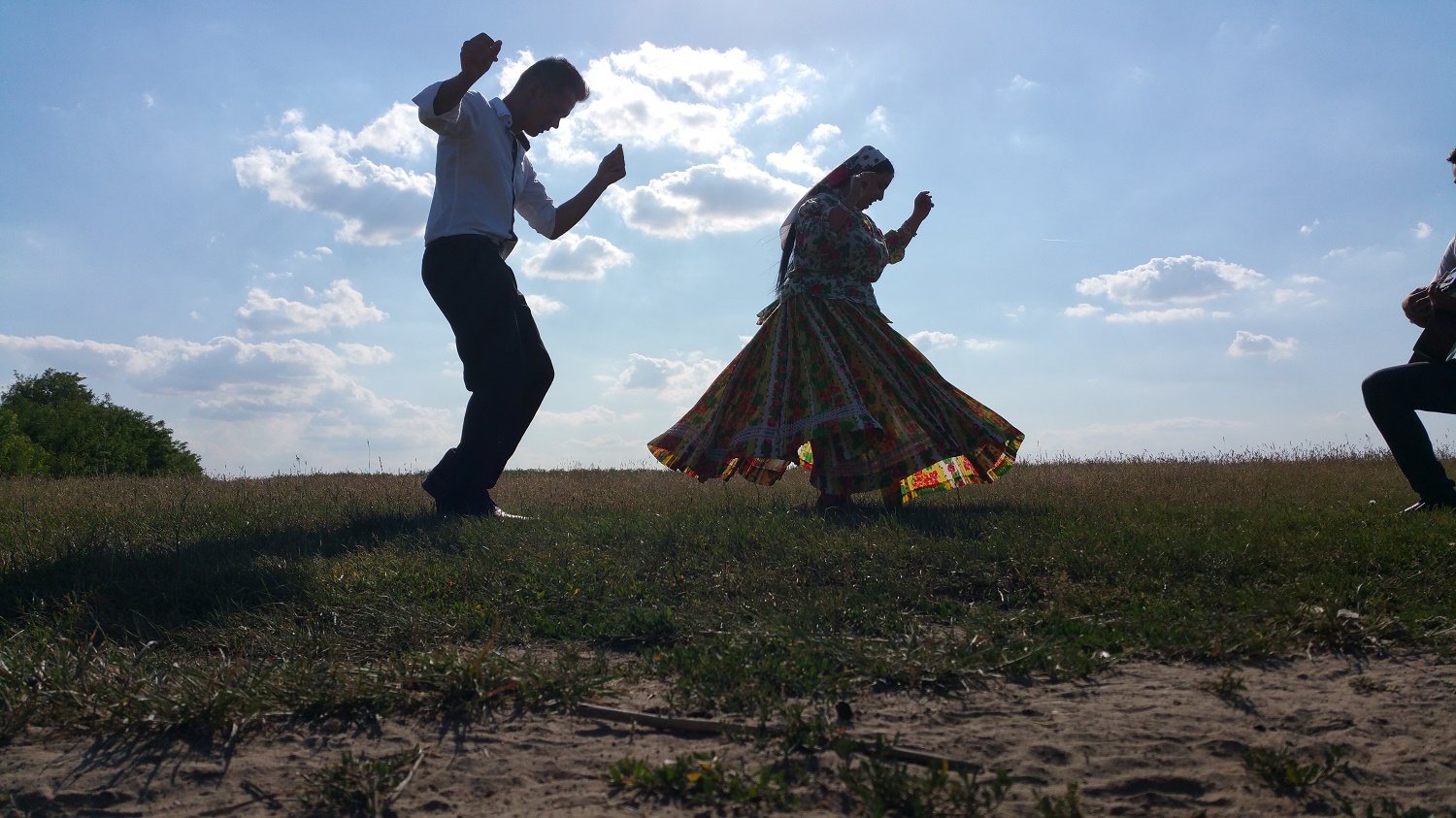
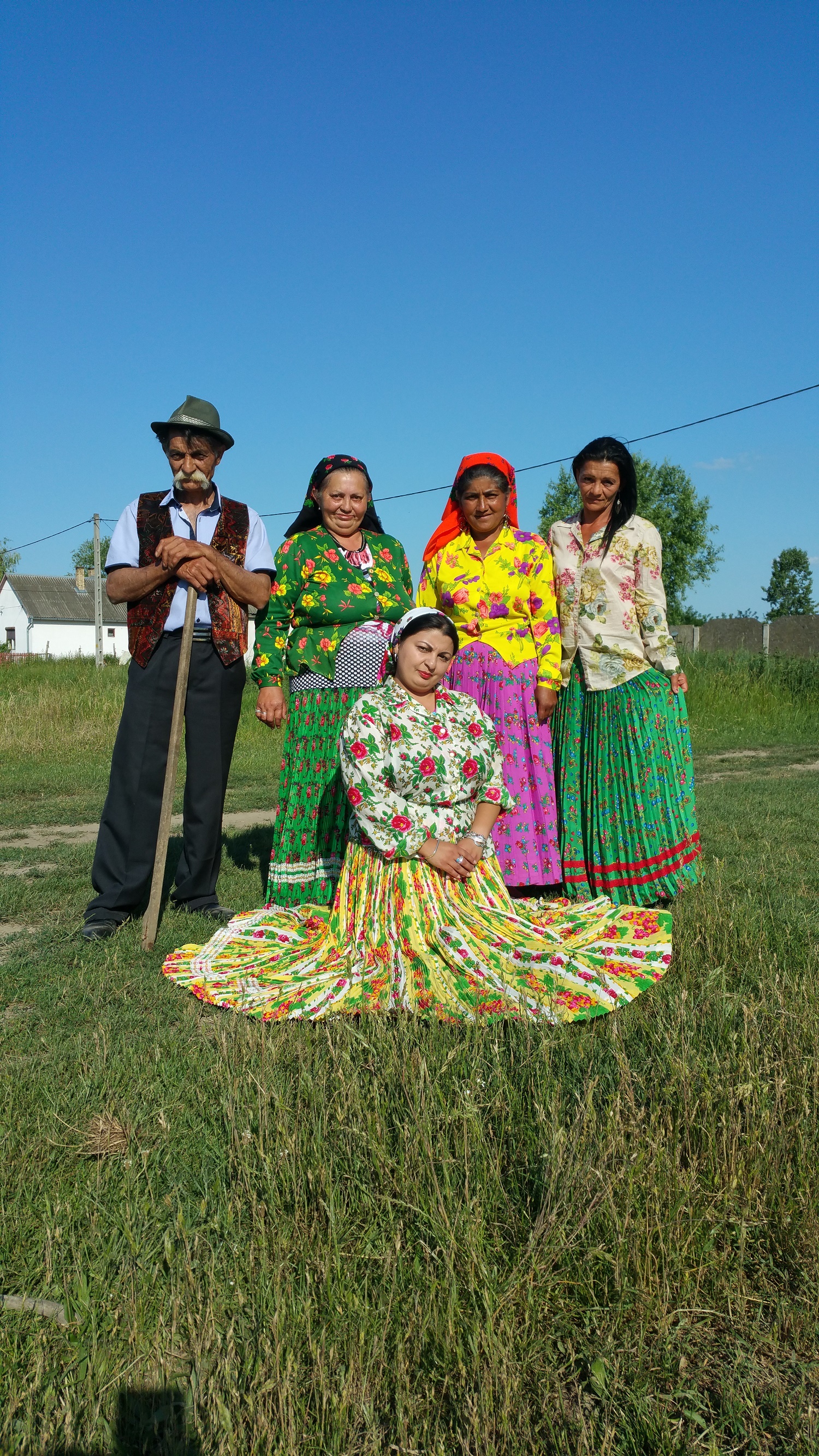
In der Europawoche kochten und präsentierten die Schüler in Ungarn Spezialitäten aus ganz Europa.
